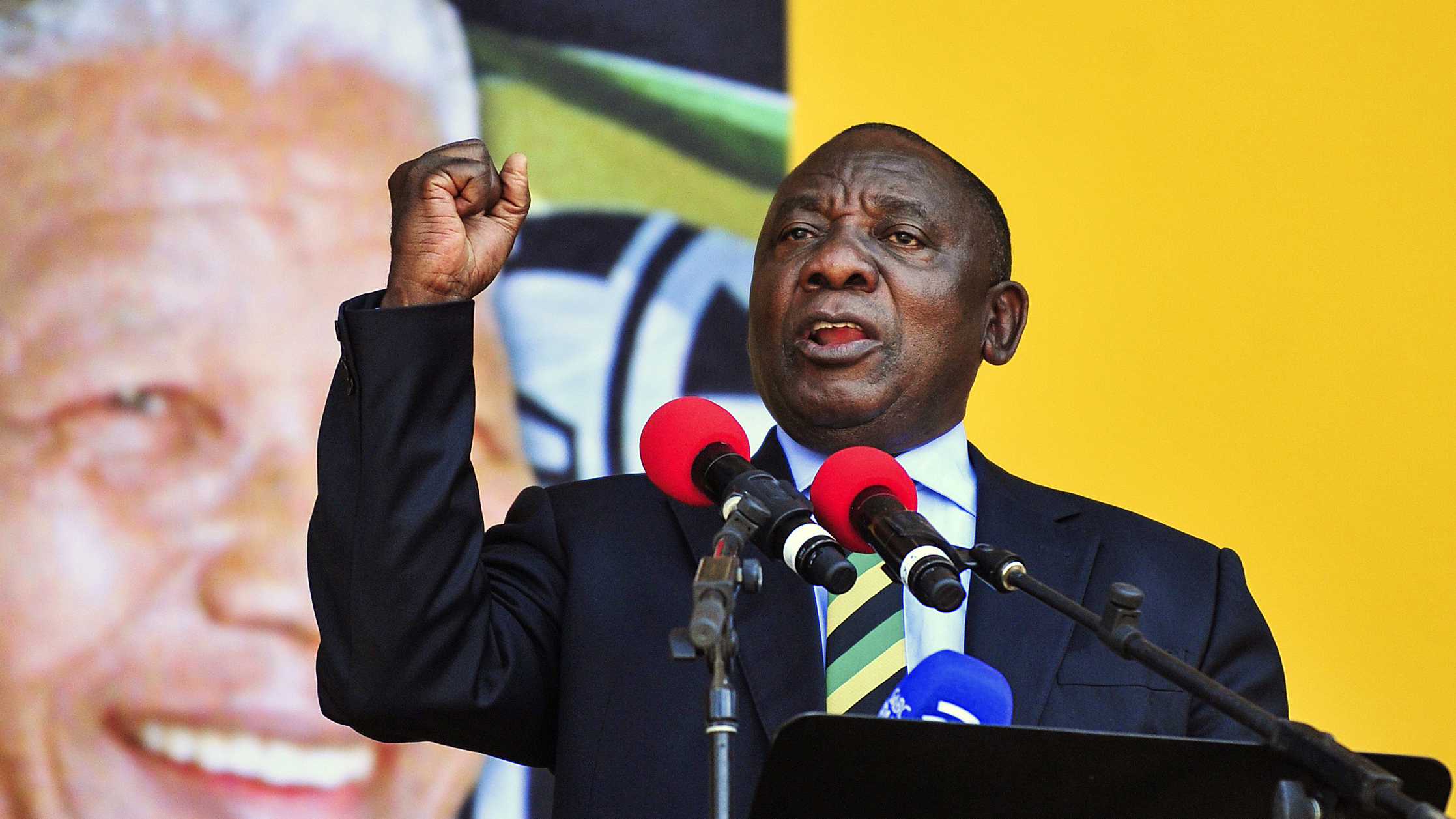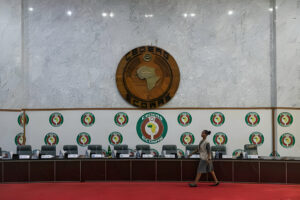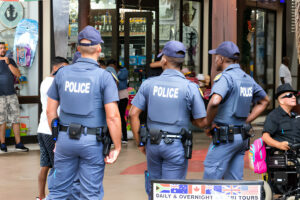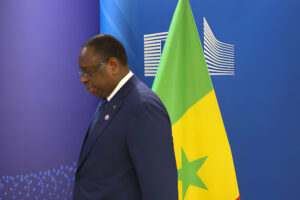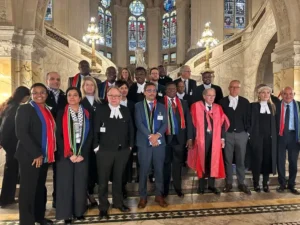South Africa has initiated a landmark case against Israel at the International Court of Justice (ICJ), alleging genocidal acts in Gaza and demanding an immediate suspension of military operations. This move, seen as a diplomatic centerpiece, aims to bolster South Africa’s international standing and garner domestic support in the lead-up to a crucial election.
Pretoria is sending a formidable legal team, described as an “A-team” by experts, to The Hague for the legal showdown. This team, combining expertise in international law and courtroom advocacy, marks South Africa’s first application to the ICJ. Analysts suggest historical and political motivations, rooted in the African National Congress’s (ANC) longstanding support for the Palestinian cause.
President Cyril Ramaphosa, invoking Nelson Mandela’s teachings, framed the case as a “matter of principle” during a recent address to ANC supporters. The ANC, grappling with accusations of corruption and mismanagement, sees this international stand as an opportunity to reinforce its core values and distract from domestic challenges.
Critics, however, view the move as a “media-seeking stunt,” with some Christian leaders and the Jewish Board of Deputies condemning the bid. South Africa’s diverse religious demographics, including a large Muslim population, raise questions about how the case will be received domestically.
Internationally, the case could enhance South Africa’s diplomatic standing, particularly among its close partners in the BRICS group. As a BRICS member, South Africa aims to counterbalance the western-dominated international order and has supported the group’s recent expansion to include countries like Iran and Saudi Arabia.
The legal basis for the case lies in both South Africa and Israel being signatories to the UN Genocide Convention. However, South Africa, not recognizing the ICJ’s “compulsory jurisdiction,” adds a layer of complexity to the proceedings.
The legal team representing South Africa includes prominent figures such as John Dugard, a former UN special rapporteur on human rights, and seasoned litigator Tembeka Ngcukaitobi, known for handling politically sensitive cases domestically.
In an 84-page submission, the legal team accuses Israel of engaging in genocidal acts and urges the ICJ to order an immediate suspension of military operations in Gaza. Israel has vehemently rejected the allegations, calling them an “absurd blood libel.”
As the ICJ hearings commence, the international community watches closely. The decision, expected in weeks, holds binding authority, although the ICJ lacks a mechanism to enforce its rulings, sometimes leading to non-compliance.
The outcome of this case will undoubtedly have far-reaching implications for South Africa’s diplomatic posture, its relationship with Israel, and the broader dynamics in the Middle East.
Note: This article is written in accordance with the principles of balanced journalism and adheres to the South African press code.

